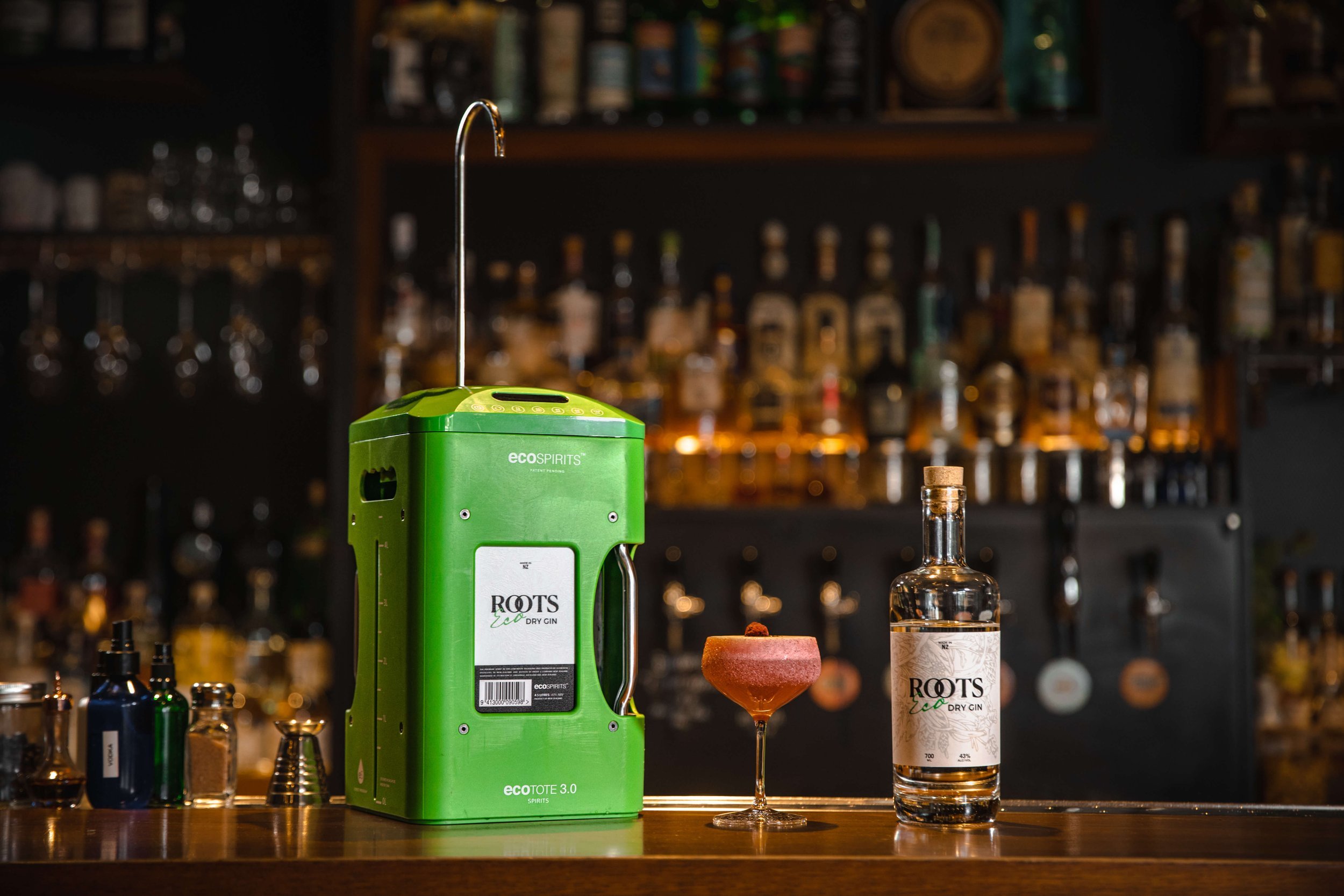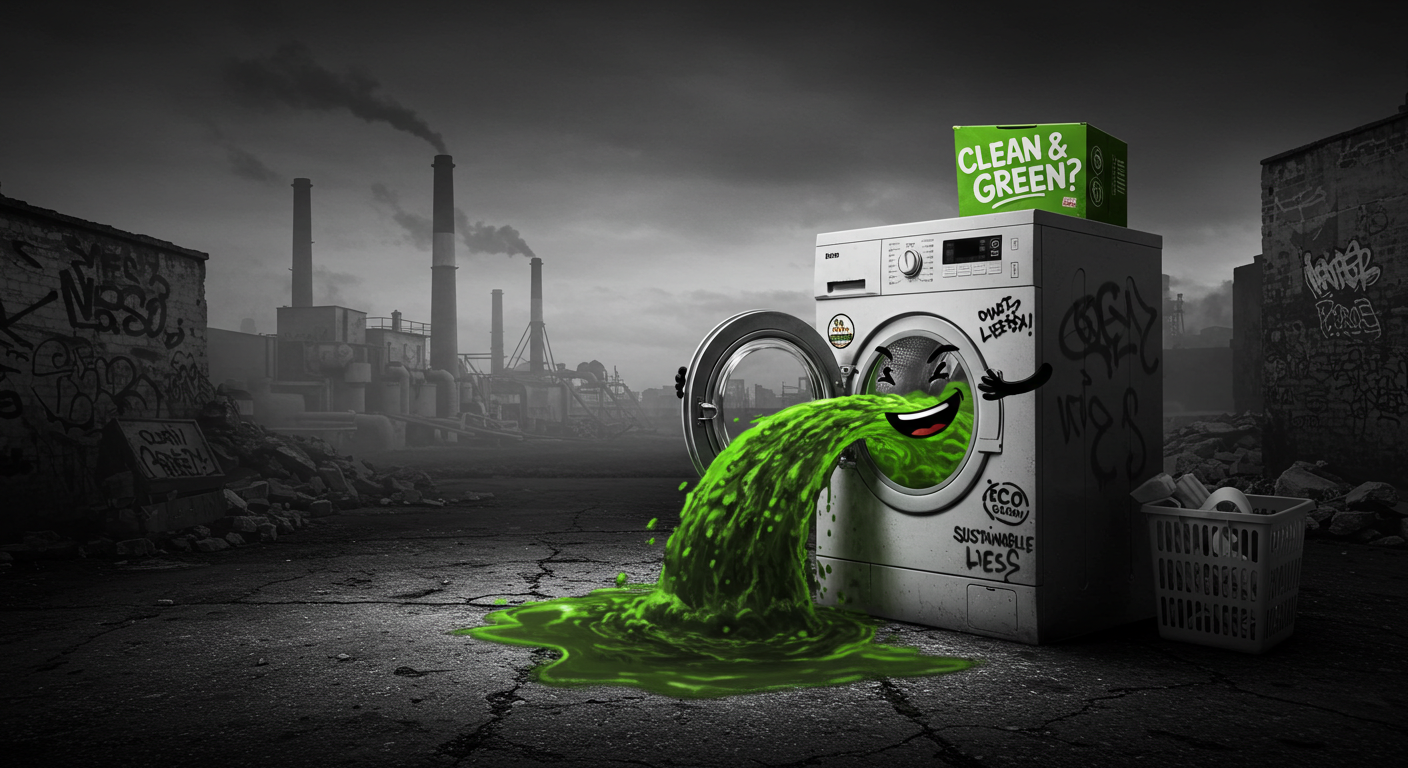
Getting Your House in Order: Tackling Your Direct Emissions (Scopes 1 & 2)
In the last article, I attempted to demystified the terminology of decarbonisation, breaking down what Scopes 1, 2, and 3 mean for a drinks business. For most of us, the largest portion of our carbon footprint (often 80-90%+) is hidden in our Scope 3 value chain – in agriculture, our packaging, and logistics.
While tackling Scope 3 is the ultimate challenge (which we will discuss in our next piece), the foundational first step on any credible Net Zero journey is to get your own house in order. This means decisively addressing the emissions you have the most direct control over: your Scope 1 and Scope 2 footprint. These are the emissions generated within your own facilities and from your purchased energy. Let's explore the practical strategies to do just that.

Decoding Decarbonisation: What Scopes 1, 2, & 3 Mean for Your Drinks Business
With the positive news from the UK’s Climate Change Committee this week that the UK can meet it’s 2050 Net Zero target, I thought it would be worth doing one of our four-part series diving into the subject that’s become such a political football recently.
Around the world, businesses and politicians are making commitments to tackle climate change, and "Net Zero" has become the headline goal. But behind the pledges, headlines, and press releases lies a complex landscape of data, definitions, and strategic decisions. Before we can effectively reduce our climate impact, we must first understand the language of decarbonisation, which I’ll admit, can be confusing at first with talk of scopes, offsets, insets, science based targets, and more.
So, what do terms like "Net Zero," "Scope 1," "Scope 2," and the notoriously tricky "Scope 3" actually mean for a distillery, brewery, winery, or brand?
Consider this first article as your practical guide to decoding the framework.

Navigating a Drier Future: Water Resilience & Strategic Planning
Over the past three posts, we've charted a course through the critical landscape of water in the drinks industry. We began by highlighting the escalating water crisis and its direct relevance to our sector. We then sailed into the agricultural supply chain, examining the vast embedded water footprint of our ingredients. Last week, we turned the focus in-house, exploring practical strategies for optimising water use within our production facilities.
For this last article in the series, we cast our eyes forward and look to the horizon. The trends we've discussed: increasing water scarcity, climate change impacts, and evolving regulations are not fleeting challenges; they are the defining characteristics of the future. Building long-term water resilience is no longer a responsible choice; it's a fundamental necessity for the survival and prosperity of any drinks business. This final article will explore the key elements of strategic water planning and summarise the core messages of our series.

Turning on the Taps Wisely: Optimising Water Use in Drinks Production
Welcome back to our series on water stewardship. In the last article, we journeyed upstream to the source of our ingredients, exploring the immense water footprint embedded in our agricultural supply chains and the importance of collaborating with farmers to reduce it. Now, we bring our focus back within our own four walls: the distillery, the brewery, the winery, the production plant.
The water used in our direct operations – for cleaning, cooling, processing, and as an ingredient – represents the part of our water footprint over which we have the most direct control. It is here that targeted action, smart investment, and a shift in mindset can lead to significant and measurable reductions in water consumption, delivering both environmental benefits and operational efficiencies. For any drinks business serious about sustainability, optimising in-house water use is a fundamental, non-negotiable step.
And we’ve already covered the case of water limitations being put in place in Suffolk which stifles growth opportunities, so improving water efficiency becomes business critical.
A systematic approach to operational water management can be broken down into three core actions: Measure, Reduce, and Reuse/Recycle.

The Source of Sustainability: Water Stewardship in Our Agricultural Supply Chain
In my previous article, "The Well Runs Dry? Why Water Demands Urgent Attention in the Drinks Industry," I confronted the stark realities of water scarcity, escalating demand, and the regulatory pressures impacting our sector. Water is not an infinite commodity but our most indispensable, and increasingly vulnerable, ingredient and operational resource.
Having grasped the magnitude of the issue, the critical question becomes: where do we begin to make a tangible difference? For many drinks businesses, the most significant portion of their total water footprint lies not within the walls of their distillery, brewery, or winery, but further afield – embedded within the agricultural raw materials that form the very essence of their products. This week, we explore the vital importance of water stewardship in these agricultural supply chains.

The Well Runs Dry? Why Water Demands Urgent Attention in the Drinks Industry
That seemingly endless resource that falls from the sky (especially if you’re from the UK) is fast becoming one of the biggest risks – and overlooked opportunities – for every drinks business on the planet. From vineyard to distillery, brewery to brand, the global water crisis isn't just lapping at our shores; it's threatening to breach the gates and dry up the lakes, all at the same time. I sound a bit hyperbolic writing this, as if predicting some Frank Miller inspired Max Maxian future, but water is the true currency of survival, and our industry needs a wake-up call – now.
With the impending risk of a summer drought in the UK this year after the driest Spring since 1852, I thought now was a good time to talk about water. This is the first instalment of an exciting new four-part series coming to a computer or phone near you entitled: "Water: The Indispensable Element – Charting a Course for Stewardship in the Drinks Industry."
Over the coming weeks, I’ll not just be writing about sweet, sweet H₂O; I’ll be dissecting a critical business imperative – understanding water's real value, the threats to its availability, and how your business can build resilience in an increasingly thirsty world.

Closing the Loop (Part 3): Circularity in Drinks Production – Beyond the Bottle
Over the past few weeks, together we've explored the fundamentals of the circular economy, then delved into the most discussed area of conversation: packaging – first with reuse and refill systems with practical, live examples, and then by examining smart design for maximising the recyclability of glass and aluminium. These are vital steps, but a truly circular approach for the drinks industry extends far beyond fancy packaging.
Today, we look inward, to within the walls of our breweries, distilleries, and wineries to uncover how these circular principles can transform production, turning potential waste streams into valuable resources and managing our most precious natural capital: water.

Closing the Loop on Packaging (Part 2): Smart Design for Recyclability & Material Innovation
Welcome back to our "Closing the Loop" series. In the first article, we defined the circular economy and its vital importance for the drinks industry, particularly with new regulatory landscapes like Deposit Return Schemes (DRS) and the EU's Packaging and Packaging Waste Regulation (PPWR) shaping our future. Last week we explored the power of reuse and refill models – strategies that sit highest on the waste hierarchy.
However, we recognise that for many applications, single-use packaging remains, for now, a widespread reality. So, if we are using packaging designed for a single primary use – predominantly glass bottles and aluminium cans in our industry – how do we ensure it has the best possible chance of staying in circulation, contributing to a circular economy rather than becoming waste? The answer lies in designing for recyclability and embracing material innovation specifically for these materials.

Closing the Loop on Packaging (Part 1): The Power of Reuse & Refill in Drinks
In our previous article, we set the stage for our "Closing the Loop" series, defining the circular economy and highlighting its deep relevance – and historical roots – within the drinks industry. We established that moving beyond the wasteful 'take-make-use-lose' model is not just an environmental imperative but increasingly a regulatory and commercial necessity, driven by factors like upcoming Deposit Return Schemes (DRS) and EU regulations (PPWR).
For this article let’s turn to the most tangible aspect for many drinks businesses: packaging. While designing for recyclability is important (which we'll cover in Part 2), the principles of circularity urge us to prioritise strategies that keep materials in use at their highest value for longer. This means putting Reuse and Refill models centre stage.

Closing the Loop: Why the 'New' Circular Economy is a Return to Smarter Systems for Drinks
Over the past month, we've focused heavily on the implications of the DMCC Act and the critical need for transparent, substantiated environmental claims. Getting communication right is vital, but it must be underpinned by genuine action and sustainable operational models. This leads us naturally to our next topic, a theme I believe is fundamental to the future resilience and responsibility of the drinks sector: The Circular Economy.
We often talk about the circular economy as a 'new' model, a necessary shift away from the dominant linear system of take resources, make products, use them, and the lose the resources. This 'take-make-use-lose' approach, born largely from post-industrial revolution abundance and the rise of consumer convenience culture, is inherently wasteful and unsustainable. The drinks industry, reliant on agriculture, water, energy, and significant packaging volumes, is deeply embedded within it.
But calling the circular economy 'new' overlooks a crucial historical truth and ignores successful systems operating right now.

Earth Day & Beyond: Communicating Sustainability Authentically
Today, April 22nd, marks Earth Day – a timely reminder of our collective responsibility towards the planet and a fitting moment to conclude our series on the UK's Digital Markets, Competition and Consumers (DMCC) Act and its crackdown on greenwashing.
Over the past few weeks, we've journeyed through the new regulatory landscape: understanding the Act's implications (Article 1), identifying the specific claims and practices now deemed high-risk (Article 2), and outlining the crucial practical steps businesses must take to ensure compliance (Article 3). Implementing those measures – auditing claims, gathering robust evidence, ensuring transparency – is essential groundwork.
But compliance shouldn't be seen as merely a box-ticking exercise or the end of the story. Instead, think of it as the essential foundation upon which truly authentic, trustworthy, and impactful sustainability communication can be built. On this Earth Day, let's explore how businesses, having done the hard work of ensuring their claims are accurate, can now move forward and communicate their genuine environmental efforts effectively and ethically

Green Claims & The DMCC Act: Practical Steps to Ensure Compliance
In the first two articles of this series, we explored the arrival of the DMCC Act's enhanced consumer protection powers and delved into the specific types of misleading environmental claims – or greenwashing – that are now firmly under the regulatory spotlight (and carry significant risk). We've covered the what and the why; now it's time to focus on the how.
Understanding the rules and the potential pitfalls is essential, but it’s proactive steps and robust processes that will truly protect your business and build authentic citizen trust. Complacency is not an option, as the Competition and Markets Authority (CMA) now has the power to act decisively against non-compliant claims.
So, what practical measures should your business be taking right now to ensure your environmental claims are accurate, substantiated, and compliant with the strengthened regulations?

Digging Deeper: Which Green Claims Are Now High-Risk Under the DMCC Act?
In my previous post, I introduced the significant changes brought by the Digital Markets, Competition and Consumers (DMCC) Act, particularly the new powers granted to the Competition and Markets Authority (CMA) to crack down on greenwashing, which came into force last week. I discussed why this matters – the erosion of citizen trust and the unfair disadvantage faced by genuinely sustainable businesses when vague or misleading environmental claims run rampant.
Now, it’s time to delve into the specifics. What kinds of claims and marketing practices are likely to attract the CMA’s attention under this enhanced regulatory framework? While the DMCC Act provides the overarching legal power to tackle 'unfair commercial practices' (which includes misleading environmental claims), the CMA’s existing Green Claims Code (published in 2021) gives us the clearest indication of the principles they apply and the practices they deem problematic. The new Act essentially gives the CMA sharper teeth to enforce these principles.

The Greenwashing Crackdown is Here: Understanding the DMCC Act's New Consumer Powers
The DMCC Act's new consumer laws target greenwashing from this week.
Understand the crackdown, the CMA's enhanced powers, and how to ensure your environmental claims are accurate and avoid fines. Essential insights for UK businesses on compliant, sustainable marketing under the new regulations.
